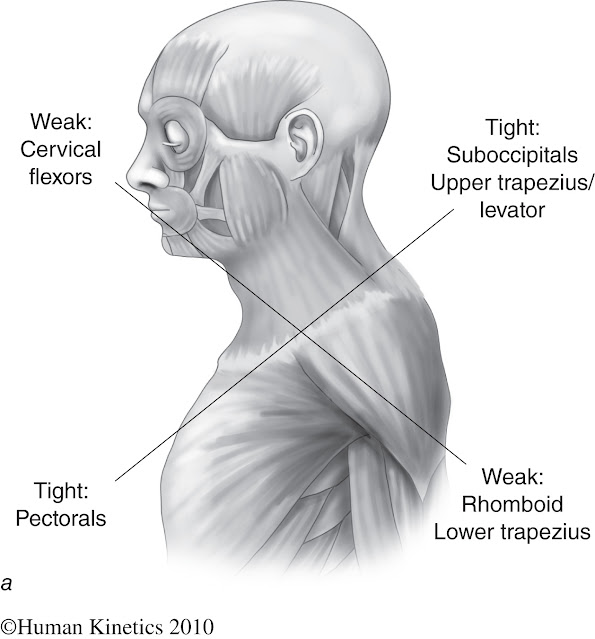One of the most commonly seen conditions in a Chiropractic office is Upper Cross Syndrome (UCS).
It’s a combination of poor posture and an imbalance of muscle use. Its most commonly seen in people who work desk/office jobs. One of the most common cause of UCS is a hunched over posture with rounded shoulders and forward head posture from repetitive tasks.
What are some symptoms?
Patients will report having symptoms such as; neck and back stiffness and pain, headaches, muscle tightness and strain, decreased range of motion in the neck and shoulders, pain in upper back, numbness, tingling and pain in upper arms, jaw pain and tightness in the chest area to name a few.
How does this happen?
The muscles in the neck, shoulders and chest make up the upper “x” of the body. The back of the neck and shoulder muscles; upper trapezius and levator scapula become overactive and strained. The muscles in the front of the neck and shoulder; major and minor pectoralis become tight and shortened. This causes the front neck muscles, cervical flexors and the muscles of the lower shoulder; rhomboid and lower traps to become weak.
How do we treat this?
The best way to treat this is with a combination of exercise, postural changes and adjustments. Stretching may feel uncomfortable at first but it helps a lot! Being mindful of your posture when you are sitting at your desk or doing office work takes some getting used to at first but goes a long way! Regular adjustments help maintain the proper curve of your spine and correct any misalignment’s that may be causing the numbness and tingling down the arm and into the fingers.
Prevention is key for a repetitive injury such as this. It’s important to take quick breaks while you are working to stretch your neck, arms, shoulders, fingers and back. Doing some strengthening exercises to target weakened muscles will help prevent muscle fatigue throughout the day. Bringing your tablet, book or cellphone to your eye level when you are using it helps prevent forward neck posture and significantly decreases the strain in your neck muscles.
If you are interested in booking an appointment, click here!


